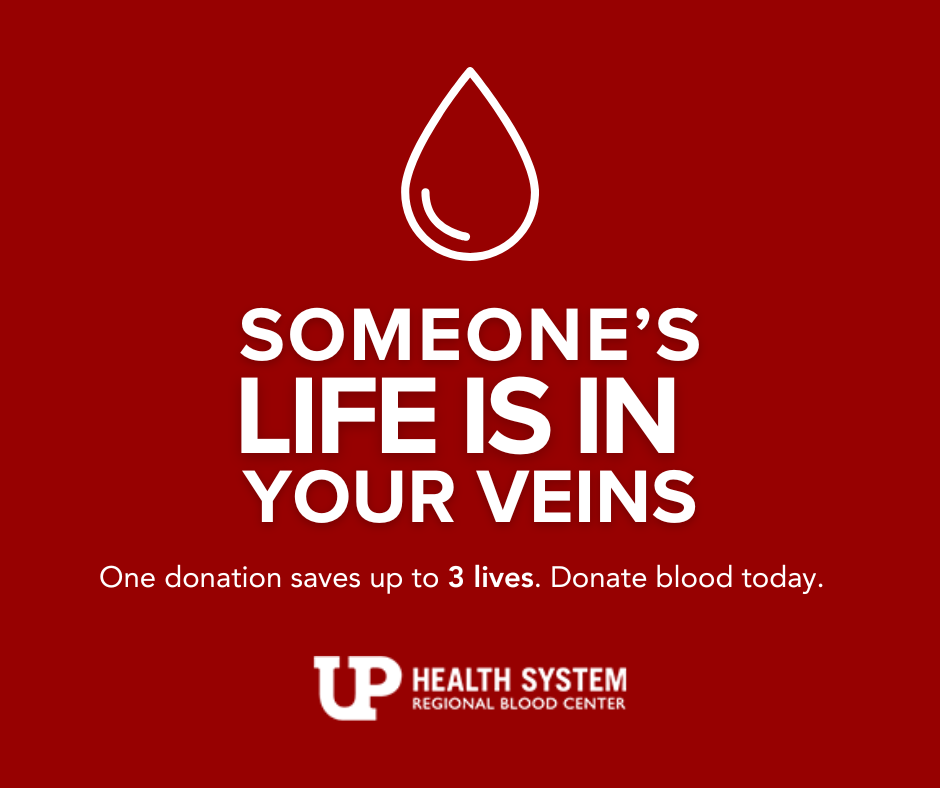Donate Blood, Save Lives – Now More Important Than Ever
March 4, 2025

Every two seconds, someone in the U.S. needs blood, making blood donation a simple yet powerful way to save lives. However, maintaining a stable blood supply can be challenging due to seasonal factors such as holiday schedules, winter weather disruptions and seasonal respiratory illnesses like the flu, RSV and COVID. Wondering what you can do? We have the answers—and the opportunity—to make a life-saving impact today.
Who Can Donate?
Blood donors play a crucial role in maintaining a healthy blood supply. To be eligible, individuals must:
- Be at least 17 years old
- Weigh at least 110 pounds
- Be in general good health
What Is the Blood Donation Process?
Donating blood is a simple yet impactful way to help others in need. The process is designed to be safe, efficient, and as comfortable as possible for donors. Here’s a step-by-step guide to what you can expect when you give blood:
1. Registration – Donors provide their identification and fill out necessary paperwork.
2. Medical History and Mini-Physical – A quick check of temperature, blood pressure, pulse and hemoglobin ensure donor safety.
3. Donation – The actual process of drawing blood typically takes less than 12 minutes.
4. Post-Donation Refreshment – Donors relax and enjoy a snack to help their body recover.
When and Where Can You Donate
The UP Regional Blood Center, a department of UP Health System – Marquette, hosts blood drives throughout the Upper Peninsula. Additionally, donors can visit blood donation centers in Marquette, Escanaba and Hancock.
For specific dates, times, and locations of upcoming blood drives, visit our Facebook page at facebook.com/upregionalbloodcenter.
Why Should You Donate Blood?
“Donating blood is one of the easiest and most effective ways that you can have a personal and direct impact on the health of our community,” says Nicole Mattila, Coordinator of Blood Collections for the UP Regional Blood Center. A single donation can save up to three lives, making each contribution incredibly valuable.
Despite the critical need, less than 10% of eligible individuals donate blood. By taking the time to donate, you can help ensure a steady supply for those in need, whether they are accident victims, surgical patients or individuals with chronic illnesses requiring transfusions.
Additional Information
- Blood donation is a safe process. A sterile needle is used once per donor and then discarded.
- Donors can give whole blood or specific components such as red cells, plasma or platelets.
- The body replenishes donated blood quickly, with some elements replaced within hours and others within weeks.
- All donated blood is rigorously tested for infectious diseases before being distributed to hospitals.
- Blood donated through the Upper Peninsula Regional Blood Center stays local, supplying 13 hospitals in the Upper Peninsula.
Get Involved
If you are interested in making a life-saving difference, contact the UP Regional Blood Center at 1-800-491-4483 (GIVE) or visit our website at UPHealthSystem.com/Regional-Blood-Center. Consider adding blood donation to your plans—it’s a small commitment with a profound impact on the lives of others.
